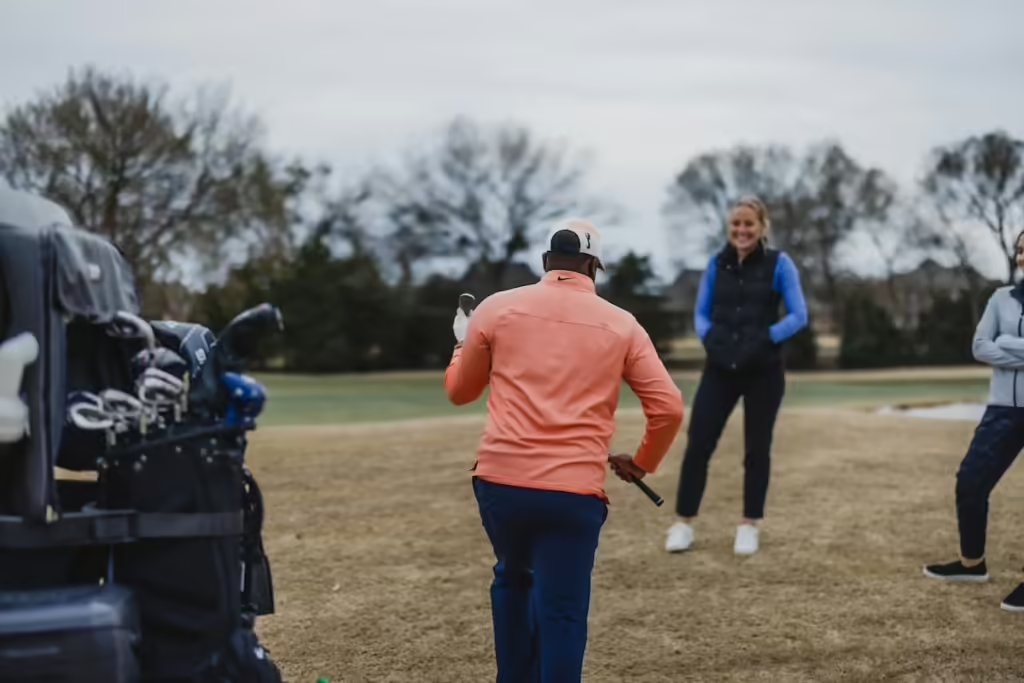Pace of play is a critical aspect of golf, ensuring that the game flows smoothly and that all players can enjoy their rounds without unnecessary delays. The rules governing pace of play are designed to maintain a steady rhythm on the course, promoting fairness and enjoyment for everyone involved. Whether you’re a seasoned golfer or new to the game, understanding and adhering to these rules is essential for a positive experience.
In this post, we’ll explore the key rules and guidelines that dictate the pace of play in golf, including the official PGA rule, time limits for strokes, group play requirements, and the role of player assistants. We’ll also discuss the potential consequences for failing to maintain the required pace and answer some frequently asked questions to help you keep your game moving efficiently.
What is the Official PGA Rule for Pace of Play?
Rule 5.6 of the PGA Rules of Golf requires players to hit their ball within 40 seconds upon arrival of their ball. This rule includes the time spent surveying the line of play. However, the PGA TOUR allows an additional 20 seconds in specific situations, such as when a player is the first to hit on a par-3 hole or making a stroke around the green.
What Are the Time Limits for Strokes in Golf?
The general rule of 40 seconds applies to most situations on the course. This time limit is designed to ensure that players keep up with the pace and do not cause unnecessary delays. The key points are:
- 40-Second Rule: Players should make a stroke within 40 seconds after they are able to play without interference.
- Surveying the Line: Time spent surveying the line of play is included in this 40-second window.
- PGA TOUR Exceptions: An additional 20 seconds is provided in certain scenarios, accounting for increased difficulty or pressure.
What Are the Group Play Requirements in Golf?
The PGA has set specific time requirements for group play to prevent bottlenecks and ensure a smooth pace of play:
- Groups of Four: Expected to complete an 18-hole round in 4 hours and 21 minutes, playing each hole in approximately 14.5 minutes.
- Groups of Three: Expected to complete an 18-hole round in 4 hours and 3 minutes, playing each hole in about 13.5 minutes.
- Enforcement: Groups that do not meet these time requirements may face penalties or be asked to speed up their pace of play.
How Can Course Rangers Help Maintain the Pace of Play?
Many golf courses employ player assistants or course rangers, whose role is to ensure that groups maintain their pace:
- Guidance and Reminders: Assistants can provide gentle reminders to keep groups on track.
- Interventions: If necessary, they can suggest skipping holes or shots, taking a rain check, or restarting the round to avoid delays.
- Value: Their presence ensures a smooth and enjoyable experience for all players.
What Happens If a Group Fails to Maintain the Required Pace of Play?
Failing to maintain the required pace of play can lead to penalties, including:
- Stroke Penalties: Applied if a group consistently lags behind.
- Loss of Hole: In match play, slow play can result in the loss of a hole.
- Disqualification: In extreme cases, persistent slow play can lead to disqualification.
FAQs on Pace of Play in Golf
What should I do if the group ahead is slow?
If the group ahead is slow, be patient, but if the delay continues, you may politely ask if you can play through.
How can I convince my group to play faster?
Encourage your group to play faster by preparing for their shots in advance, move quickly between strokes, and stay ready to play as soon as it’s their turn to keep the game moving efficiently.
Can I be penalized for slow play if the delay is not my fault?
Yes, penalties can be applied to the entire group, so it’s important to communicate and encourage each other to maintain a good pace.
What happens if my group is asked to speed up?
If asked to speed up, it’s essential to comply immediately. Failing to do so could result in further penalties or disqualification.


